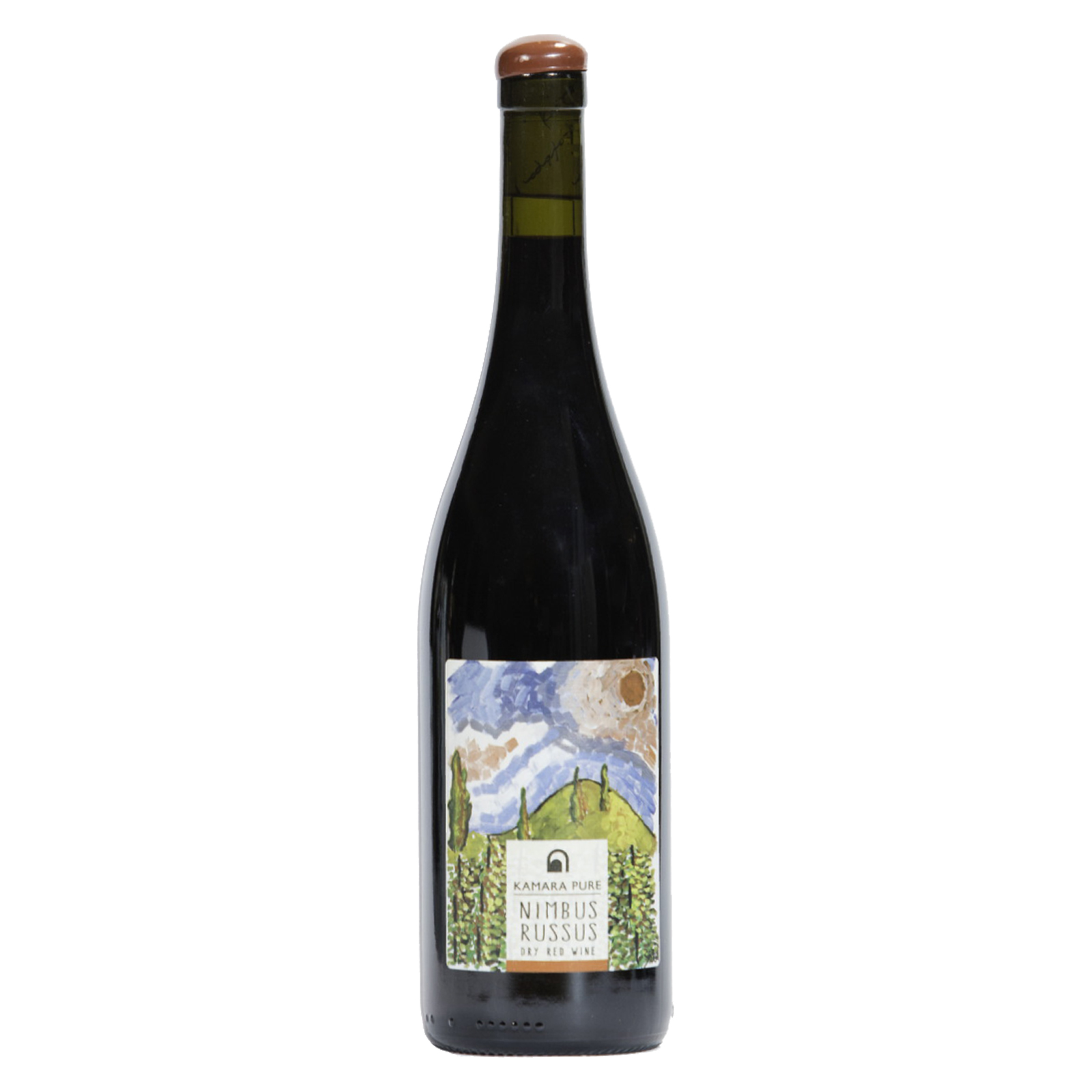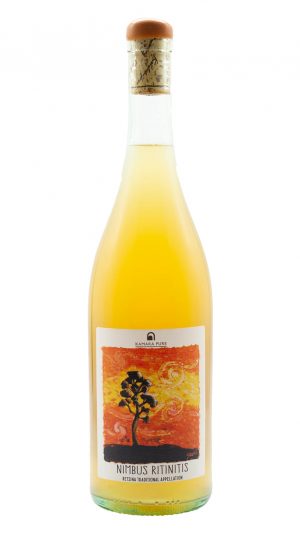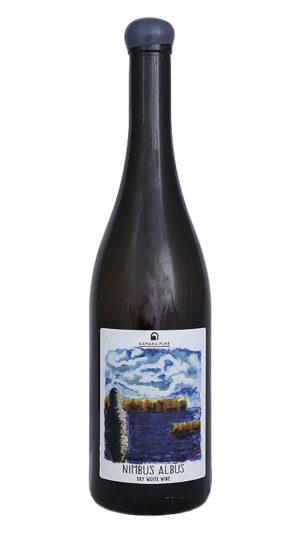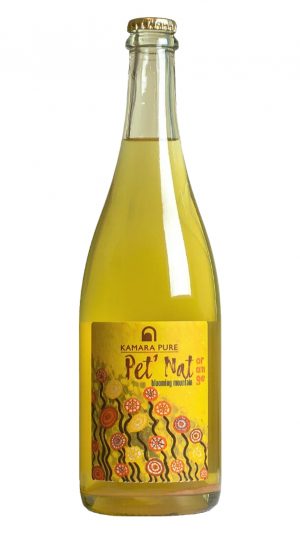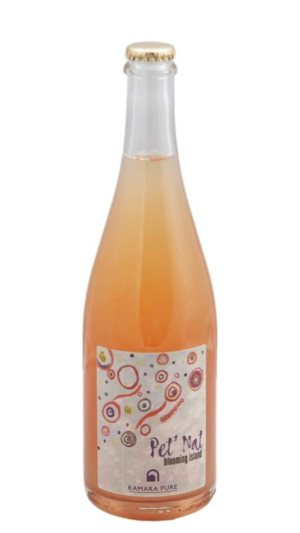Kamara Russus Red 2019
Type: Red
Country: Greece
Region: Thessaloniki
Grape Variety: Xinomavro, Merlot, Limnio
Viticulture: Natural Wine | Biodynamic | Certified Organic
Climate: Continental climate
Terroir: Merlot: Grows on clay-sand soil at 140m above sea level. Limnio: Grows on sandy clay loam soil at 140m above sea level. Xinomavro: grows on clay sand schist soil at 140m above sea level
Winemaking: The grapes are half destemed and in half-full bunches. Spontaneous alcoholic fermentation with indigenous yeasts for 25 days (temperature of the fermentation is 25-30 degrees Celsius), no oenological substances added. Spontaneous malolactic fermentation. The produced wines are mixed and aged for 12 months in old barrels. Battonage sur lie for 3 months. No protein stabilization, no fining, no filtration, only tartaric stabilization during the cold days of winter. No sulfites added. The wine is bottled with a natural cork closure, in order to ensure a unique aging capacity
Color: Intense ruby–red with purple highlights
Nose: Impressive fruit expression with berries, dogwoods, plums and liquorice combined with notes of eucalyptus, black olives and intense black pepper
Palate: Spicy palate of black and green pepper, cinnamon and nutmeg complemented by earthy notes of fresh soil and hints of dark chocolate
About the Winery:
Dimitrios Kioutsoukis’s family hailed from East Romylia back in the early 1900s. The family had always harboured a dream to make wine like their ancestors but lacked the finances to start a winery. Dimitrios trained and worked as a chemical engineer originally, and worked for many years in the medical field, to save money to fulfill this winemaking dream. The region he lived in, Thessaloniki, in northern Greece, had been well known for the cultivation of vines, but since phylloxera cultivation had all but died out. He studied winemaking through the UC Davis extension program and decided in 2010 to plant 11 hectares of vines of Greek varieties including Assyrtiko, Malagousia, Roditis, Xinomavro, Limnio, Muscat, and Moschfilero.
From the very beginning, the vineyards were worked only in accordance with long-standing traditions, like manual pruning, hoeing of weeds, and harvesting, and use of natural sprays made from plants like nettle and yarrow, and composting and fertilization with natural manure. They always sought to do as few treatments as possible, to maintain balance with the natural way of the vines and nature. Then in 2015, with his daughter Stavroula, an agronomist and oenologist, he took the giant step of converting all his production to natural methods. The wines are now all naturally fermented with indigenous yeasts, have no products added or subtracted, are not filtered, and have zero sulfur added at bottling.

